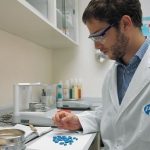Pfizer CEO says there is no assurance that vaccine can prevent coronavirus from being transmitted

Since the coronavirus pandemic began at the beginning of this year, the whole world has been waiting patiently for the vaccine to provide some kind of immunity against the virus so people can return to their normal lives. Now that the vaccines are here, it seems things may never return back to normal. To date, more than 274,000 Americans have died of the deadly virus.
Now, it turned out there’s no assurance that the vaccine we’ve all been waiting for can prevent coronavirus from being transmitted. In an interview with Dateline host Lester Holt, Pfizer chairman, and CEO Albert Bourla said it’s not clear if the company’s coronavirus vaccine will be able to stop the spread of the virus to other people. He said the company is not sure if someone can transmit the virus after vaccination. Bourla said:
Pfizer was “not certain” if the vaccine prevented the coronavirus from being transmitted.”
Bourla added saying, “This is something that needs to be examined.” The prime-time special titled “Race for a Vaccine” is set to air Thursday, Holt questioned Bourla and other individuals involved in the development and distribution of the medicine.
In November, Pfizer announced that its vaccine candidate had been shown to be more than 90 percent effective at preventing COVID-19 and has applied for emergency use authorization from the Food and Drug Administration (FDA).
Early last month, Pfizer and its partner BioNTech, announced that its COVID-19 vaccine offers 90% protection. After testing the vaccine on 43,500 people in 6 countries, the company said the vaccine showed no safety concerns.
As part of the interview highlights released before the special, Holt asked Bourla: “Even though I’ve had the protection, am I still able to transmit it to other people?”
“I think this is something that needs to be examined. We are not certain about that right now with what we know,” Bourla answered.
Back in July, we wrote about Pfizer after the drug giant, and the biotech firm BioNTech reportedly improves immune responses in healthy patients. According to the study documented in a 16-page paper, researchers randomly assigned 45 patients to get one of three doses of the vaccine or placebo. Twelve received a 10 microgram dose, 12 a 30 μg dose, 12 a 100 μg dose, and nine a placebo. The 100 μg dose caused fevers in half of the patients; a second dose was not given at that level.
Below is a video preview of the interview.
They’re in the biggest race of our time — the race to make a Covid vaccine. Tonight, @LesterHoltNBC sits down with the heads of @pfizer, @moderna_tx, and @JNJNews at 10/9c on a special edition of #Dateline. pic.twitter.com/sMLX8QEPX2
— Dateline NBC (@DatelineNBC) December 3, 2020

